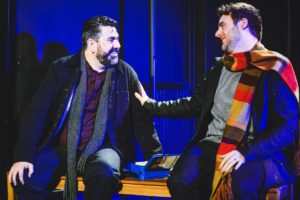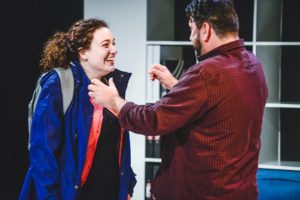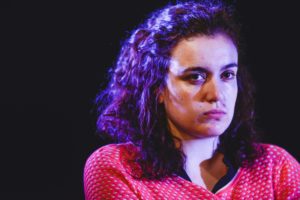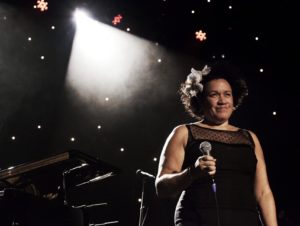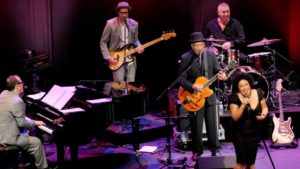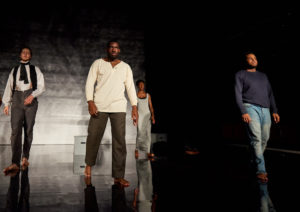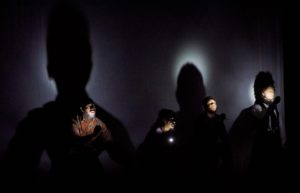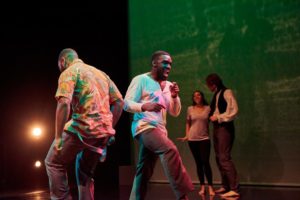 (4.5 / 5)
(4.5 / 5)
Lisa Parry’s stunning new play, “2023” is enjoying a run at Chapter in Cardiff.
Back in 2005, legislation was passed by H.M. Government, that decreed that a person who had been conceived through donated eggs or sperm, upon reaching the age of 18, have a right to know the identity of the donor parent. Hence the title 2023 because that is when this legislation will be tested for the first time.
There’s enough material here by itself to warrant a topic for dramatic work, but into the mix, Ms Parry throws in issues of D/deafness, parental homosexual relationships and the increasing influence of technology and science that challenge our hereditary traditions of connection.
The opening scene on a park bench in Cardiff introduces Chris and John. This amusing scene is laced with sexual innuendo, and it quickly identifies the two guys as homosexual lovers.
Chris and John are debating on how to go about having their child through the services of a surrogate.
Enter Mary, recently eighteen and a product of the donor programme, who wishes to find her genetic parent, Chris. Mary is Deaf.
I should point out the distinction between referring to someone as deaf or Deaf. With the small ‘d” generally one refers to someone who mixes with hearing people, using sign language or lip-reading. Whereas Deaf people have a strong feeling of cultural identity and will feel part of a community in a stronger way.
Mary’s curiosity is fuelled by the fact that she is Deaf and wants to know whether her affliction was genetic and that she has deaf siblings, who were also brought up by hearing parents, in order for her to establish her bond of Deafness.
Lisa Parry’s script is crisp and lucid. Obviously well researched, she introduces a number of thought provoking issue into the play’s taught 95 minute framework.
It’s very much about connections. Familial, genetic, gay marriage, racism brought about from a strong feeling of nationalism, (very much an issue in these Brexit days) and d-Deaf issues.
Director Zoe Waterman provides a non-fussy touch that is just what is required. Lisa and Zoe are co-director of Illumine Theatre, who are presenting this play. It is obvious that together they produce harmonious and a unity of purpose to their work.
Kitty Callister’s very white design which consists of an Ikea type wall unit, and the most uncomfortable looking sofa that I have seen in recent times, complements the action perfectly. Eleanor Higgin’s Lighting helps to create an overall image of antiseptical clarity.
The use of soundtracks from sci-fi movies also fits in well with the slightly futuristic feel.
Deaf actress Stephanie Back, according to the programme notes has a passion about access and inclusion in society. As Mary, she provides an extraordinarily good performance of charged emotion.
Supported by fine performances from Tom Blumberg as John and Richard Elis a Chris, who provide sensitivity and comedy in equal measures, this is a first-rate cast who do justice to the skillful writing and excellent production values.
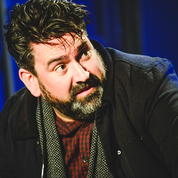
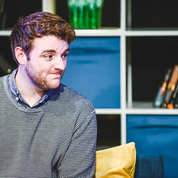
“2023” provides a challenging and illuminating experience. I propose that it is in the running for best Welsh new play of 2018.
Continue reading Review of 2023 at Chapter, Cardiff by Roger Barrington

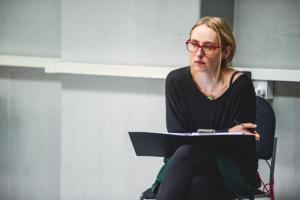

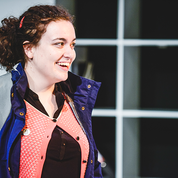
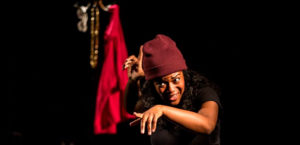
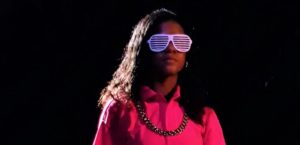




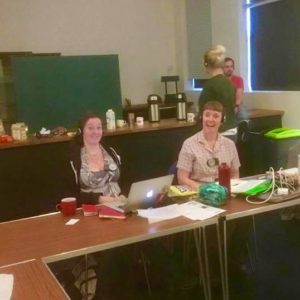
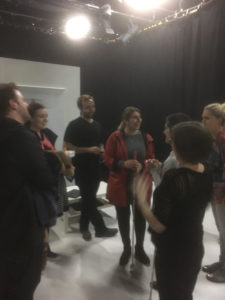

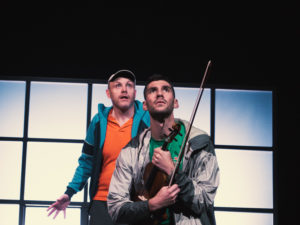
 (3 / 5)
(3 / 5)
